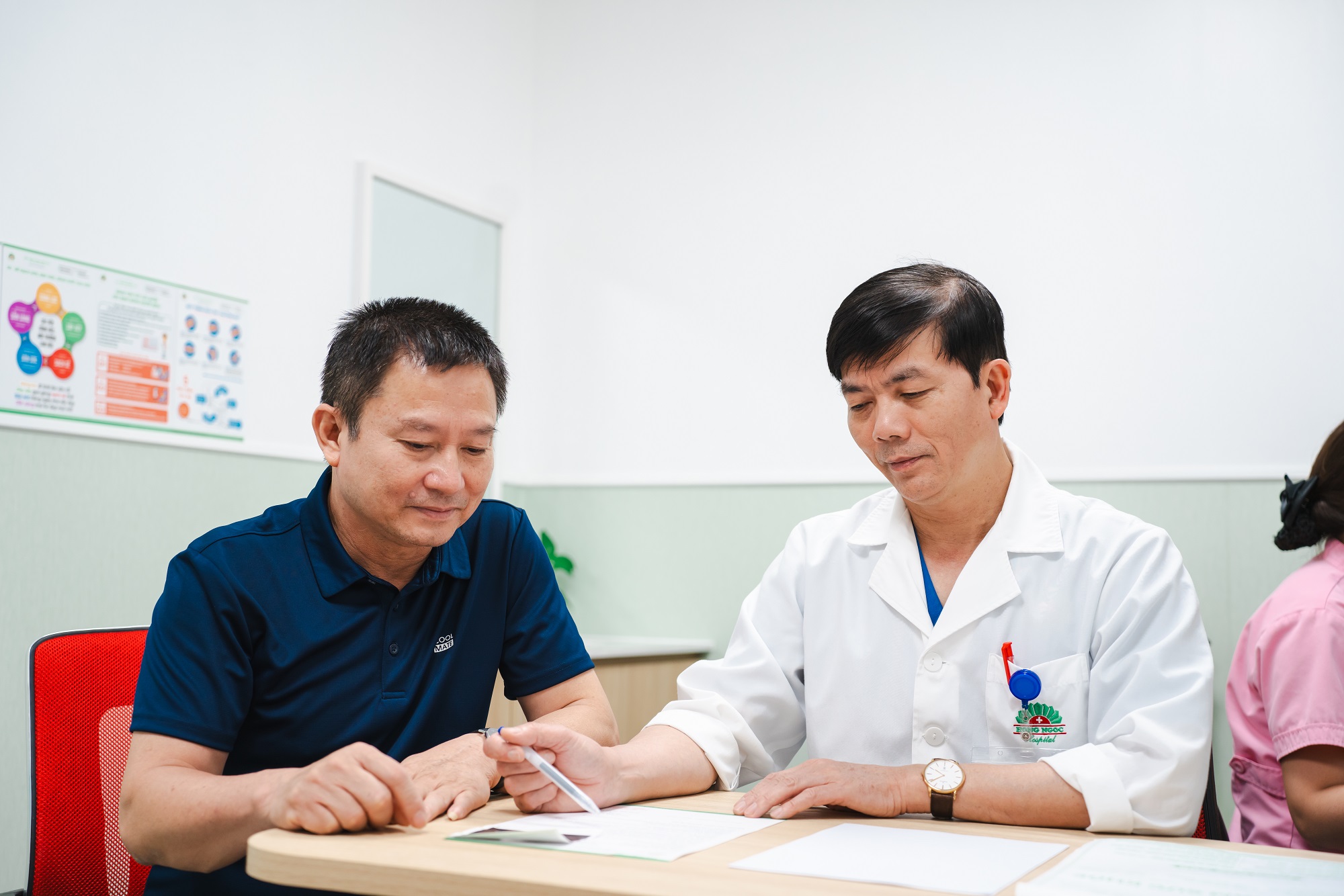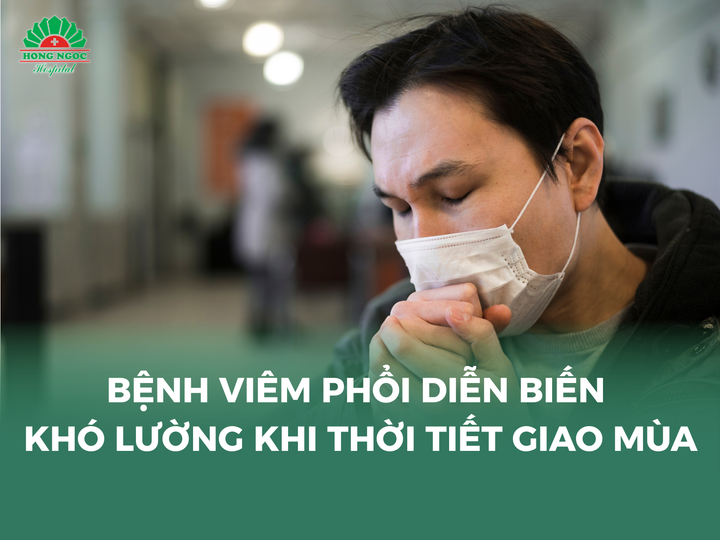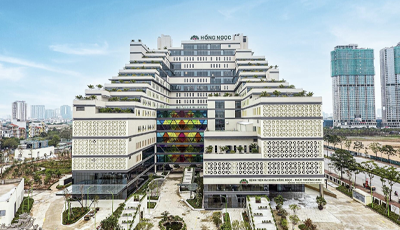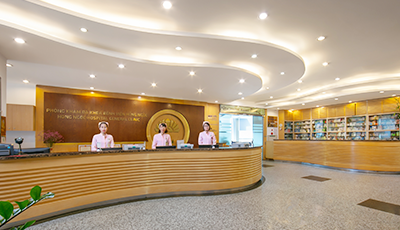Internal hemorrhoids are dilated and enlarged veins in the rectoanal region, located above the dentate line. Although they may cause significant discomfort, internal hemorrhoids are often difficult to detect in their early stages and are frequently diagnosed late, making treatment more challenging and costly. Gaining a clear understanding of internal hemorrhoids is essential for effective prevention, accurate diagnosis, and timely treatment.
What are internal hemorrhoids?
Internal hemorrhoids are a condition caused by swollen or enlarged veins in the rectoanal region, located above the dentate line. They may lead to discomfort even when patients are not fully aware of their presence. Internal hemorrhoids develop near the end of the rectum and cannot be seen or felt unless they prolapse outside the anus.
Compared to external hemorrhoids, internal hemorrhoids are more difficult to diagnose because the hemorrhoidal masses are hidden inside the rectum. In men, due to stronger pelvic floor muscles, prolapse is less common, and patients often seek medical attention only when complications such as rectal bleeding occur.
Although anyone can develop internal hemorrhoids, the condition is most prevalent in individuals between 28 and 50 years of age.
Classification of internal hemorrhoids

They are classified into four grades as follows:
- Grade I: Hemorrhoids remain entirely inside the anal canal. At this stage, the hemorrhoids are newly formed. Endoscopic examination may reveal soft, reddish nodules of varying sizes on the lower rectal mucosa. Because the hemorrhoids are still small, they do not protrude outside the anus. Patients may only experience itching around the anus, discomfort during bowel movements, and, in some cases, mild rectal bleeding.
- Grade II: Hemorrhoids remain inside the anal canal under normal conditions but may prolapse slightly during straining or bowel movements. After defecation, they spontaneously retract back into the anal canal.
- Grade III: At this stage, hemorrhoids prolapse outside the anal canal and cannot retract on their own. They can only be pushed back manually. Symptoms such as pain, bleeding, and discomfort become more pronounced during bowel movements, and in some cases, pain may occur even while sitting.
- Grade IV: Hemorrhoids remain prolapsed outside the anal canal almost constantly. This is the most severe stage of internal hemorrhoids. The prolapsed masses are swollen and irreducible, with impaired blood circulation. Bleeding is less common, but excessive mucus discharge occurs, leading to persistent moisture, ulceration, and in severe cases, necrosis of the hemorrhoidal tissue.
Causes and symptoms of internal hemorrhoids
In some cases, hemorrhoids may be an unavoidable condition associated with aging. This results from reduced collagen in the anorectal tissues, leading to dilation of the hemorrhoidal veins, weakening of the suspensory ligaments, and degeneration of the supporting tissue. Hemorrhoids can also develop at any time when additional pressure is placed on the rectum. Some of the most common causes and symptoms of internal hemorrhoids include:
Constipation and diarrhea: Both conditions increase pressure in the rectal area - either from excessive straining during constipation or from frequent bowel movements during diarrhea. While constipation and diarrhea can usually be managed through dietary and lifestyle modifications, cases associated with underlying conditions such as irritable bowel syndrome (IBS) or inflammatory bowel disease (IBD) require specialist consultation.
Pregnancy and childbirth: Many women develop hemorrhoids during pregnancy, as the growing fetus exerts pressure on the veins. In addition, the physical strain of labor and delivery can also contribute to the onset of hemorrhoids.
Obesity: Individuals who are overweight or obese are at higher risk for both internal and external hemorrhoids due to increased pressure around the rectum. Obesity is also frequently linked to poor dietary habits and a sedentary lifestyle.
Prolonged sitting: Sitting for extended periods can cause excessive stress on the rectal region. Regular physical activity plays a key role in preventing hemorrhoids and other anorectal disorders.

Diagnostic methods for internal hemorrhoids
Internal hemorrhoids can be diagnosed simply by examining the rectal area. In addition, other methods may also be used, such as fecal occult blood testing, sigmoidoscopy, and anoscopy to evaluate the condition.
What does a hemorrhoid examination include? Important notes for patients
When should you seek a medical examination for hemorrhoids?
As analyzed above, if hemorrhoids are not treated properly and in a timely manner, the disease will progressively worsen and inevitably lead to dangerous complications. Therefore, patients should visit a reputable medical facility and consult with a specialist in gastrointestinal surgery or colorectal surgery for a hemorrhoid examination as soon as they notice abnormal signs such as anal pain, itching, moisture, difficulty passing stool with bleeding during bowel movements, signs of anemia, or fatigue.
What does a hemorrhoid examination include?
First, the specialist will ask several questions regarding medical history and possible genetic factors, such as:
- Does anyone in your family currently have or have had hemorrhoids?
- What is your occupation?
- What is your daily diet like? Do you often eat spicy, fatty foods? Do you drink enough water daily? Do you eat little vegetables?
- Have you ever given birth?
- Have you ever suffered from constipation?
- What symptoms do you experience during bowel movements?
- Have you used any medications or treatments before? If so, for how long?
After that, the doctor will examine the anal region through inspection and digital rectal examination to check for lesions and internal conditions, helping to accurately determine the status and severity of the hemorrhoids. For the most accurate diagnosis, the doctor may also order additional tests such as blood tests or recto-anal endoscopy.
Based on this information, the doctor will evaluate the disease and apply an appropriate treatment method. Patients will also be advised on dietary and lifestyle adjustments. In addition, follow-up visits should be attended as instructed in order to promptly manage complications or disease progression.
Reader may also be interested in:
- What are external hemorrhoids? Classification, symptoms, and treatment
- Hemorrhoids: Causes, symptoms, prevention, and treatment
- Mixed hemorrhoids: Symptoms, causes, prevention, and effective treatment
Important notes when going for a hemorrhoid examination
Patients should maintain personal hygiene and carefully clean the anal area, bring along relevant medical records or past test results, and avoid alcohol or stimulants before the consultation.
Treatment methods for internal hemorrhoids
Internal hemorrhoids can be treated in different ways, depending on the severity of the condition.
In mild cases, internal hemorrhoids are not difficult to treat; however, they must be managed early and with persistence. Oral medications and suppositories can be used to relieve symptoms without the need for surgery. Maintaining a healthy, balanced diet is also an important measure in treating early-stage internal hemorrhoids. So, what foods should patients with internal hemorrhoids avoid? In the early stages, patients should refrain from eating foods that are difficult to digest, and should avoid alcohol, beer, smoking, and other stimulants.
For cases complicated by thrombosis, early intervention is required. This may involve excision or a combination of thrombectomy with other hemorrhoidectomy techniques. Some common surgical treatments currently used include sclerotherapy, cauterization, rubber band ligation, hemorrhoidectomy, and the Longo procedure.
Trusted and effective address for examination and treatment of internal hemorrhoids
To clearly determine the stage of internal hemorrhoids and the appropriate treatment plan, patients should visit reputable medical facilities for consultation and examination with specialized physicians.
Hong Ngoc General Hospital brings together a team of highly qualified doctors and a system of modern medical equipment, gradually becoming a trusted address for many patients seeking diagnosis and treatment of hemorrhoids. Patients can be completely assured of the expertise of the hospital’s gastrointestinal surgery specialists, led by People’s Physician, Assoc. Prof. Dr. Nguyen Xuan Hung.
Assoc. Prof. Dr. Nguyen Xuan Hung is one of Vietnam’s leading experts in gastrointestinal surgery and anorectal diseases:
- Former Director of the Colorectal and Pelvic Floor Surgery Center, Head of the Department of Gastrointestinal Surgery, and Head of the Outpatient Department at Viet Duc University Hospital.
- Vice President of the Vietnam Association of Colorectal Surgery; Member of the Vietnam Association of Surgery and Endoscopic Surgery.
- Member of the French Association of Colorectal Physicians.
- Visiting lecturer at Hanoi Medical University and Vietnam National University.
In addition, the hospital’s team includes other highly experienced doctors such as:
- Assoc. Prof. Dr. Pham Van Cuong (Specialist Level II): Nearly 40 years of experience; Member of the Vietnam Association of Endoscopic Surgery and Surgery.
- Dr. Cu Trung Kien, MSc: Specialized training in gastrointestinal surgery in Hong Kong; former physician at Bach Mai Hospital; Deputy Head of the Department of Gastrointestinal Surgery, Hong Ngoc General Hospital – Yen Ninh.
- Dr. Bach Phuc Huy (Specialist Level I): More than 15 years of experience; Head of the Gastrointestinal Surgery Unit, Hong Ngoc General Hospital – Phuc Truong Minh.

Treat hemorrhoids with specialists to ensure:
- Accurate diagnosis: Avoid confusion with rectal cancer, polyps, and other anorectal conditions.
- Adequate treatment: 50% of cases may only require medication combined with dietary and lifestyle adjustments; 45% can be managed with simple procedures.
- Effective intervention: Minimally invasive, rapid recovery, very few complications, with a cure rate of over 95%.
Hotline for specialist appointments: 0911 908 856 Hotline for surgical consultation: 0949 646 556
Register for more information and consultation at:
Note: The information provided in this article by Hong Ngoc General Hospital is for reference only and does not replace medical diagnosis or treatment. Patients should not self-medicate. To accurately determine their condition, patients should visit a hospital for direct examination, diagnosis, and treatment planning by qualified physicians.
Follow Hong Ngoc General Hospital’s fanpage for more useful health information and updates on special promotional programs.













